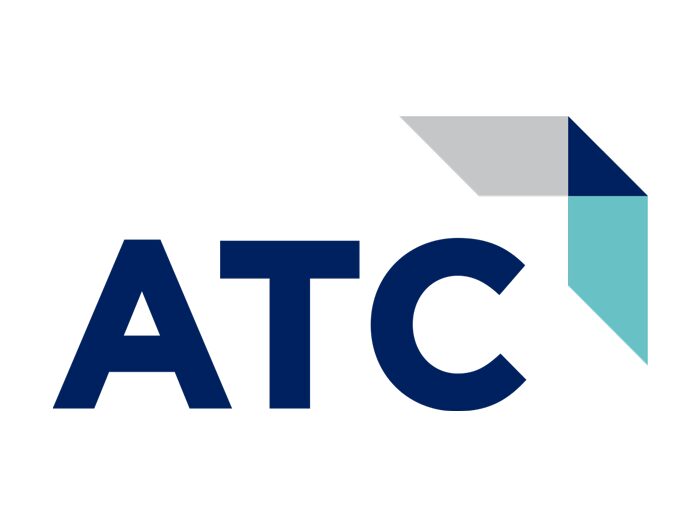
When you think of a financial services contact center, what typically comes to mind is a room full of people sitting at desks with phones, computers, and headsets; however, that image is changing. Financial services contact centers are moving to the cloud.
Here’s a look at some of the top reasons financial services contact centers are making that move. Could it be the right move for your contact center?
(This post was originally published here by ATC provider, RingCentral.)
Reason 1: A Global Healthcare Crisis
At the beginning of 2020, a global healthcare crisis led to lockdown orders issued by governments around the world. Over 74% of contact centers closed their physical locations and gave employees the tools to work from home.
By moving to a cloud contact center model, organizations were able to continue to meet customers’ needs at a time of stress and uncertainty. Customers didn’t feel abandoned; on the contrary, they felt supported and that the company was there for them when they needed it most.
Reason 2: Cloud Contact Centers Give Agents the Tools They Need to do Their Jobs
Cloud contact center software gives employees the tools they need to meet customer needs. It offers an internal directory with a presence indicator, so agents can connect with their colleagues to answer customer questions in a single interaction.
There are also file sharing options as well as chat, and video conferencing, so agents no longer sit in a silo. Rather, they’re connected to the rest of the organization and have the collaborative tools they need to meet customer expectations and perform their jobs at optimum levels.
Reason 3: Hybrid Work Environments
Though the global pandemic may have hastened the move to cloud contact centers, as pandemic restrictions ease, it is likely that many contact centers will maintain a hybrid approach, with some agents working remotely while others return to a physical contact center location.
Cloud contact center solutions enable agents to use the same work tools and processes regardless of whether their work environment is at home or in a formal office setting. This type of flexibility represents the reimagined workspace of the future—one with fewer physical boundaries and greater possibilities for agents.
There are a number of reasons to consider this approach, not the least of which is business continuity. Hybrid work environments offer contact centers a fallback position in the event that either on-site or remote work becomes impractical or infeasible for some reason. Other benefits of hybrid work environments for the contact center include the possibility of expanding talent acquisition to a more diverse workforce, expanding hours of operation with more flexibility in scheduling, and the ability to provide agents with more choices to enhance their work-life balance.
Customers want omnichannel flexibility when they reach out to their financial services institution. Seventy-eight percent of people who love texting wish they could regularly text businesses, while a Forrester report shows that 62% of business owners believe they’ll lose ground if they don’t offer social media customer service channels. By offering omnichannel support, financial services contact centers give customers the freedom to connect on their terms.
Reason 4: Omnichannel flexibility
One of the biggest benefits of cloud contact centers is that they offer omnichannel flexibility. Omnichannel flexibility means that in addition to offering voice calls, customers can connect through social media channels, text messages, emails, and even video.

Customers want omnichannel flexibility when they reach out to their financial services institution. Seventy-eight percent of people who love texting wish they could regularly text businesses, while a Forrester report shows that 62% of business owners believe they’ll lose ground if they don’t offer social media customer service channels. By offering omnichannel support, financial services contact centers give customers the freedom to connect on their terms.
Reason 5: Cost Savings
Operating a cloud contact center saves your organization money. For a start, you save money on real estate. When agents work at home, you’re not spending money on that space. Moreover, cloud contact center software is less expensive than traditional on-premise contact centers because of the savings they convey in capital expenditures. According to the “Intelligent Customer Engagement: 2019-2020 Research Study” by Nemertes, the breakdown of operational costs for contact centers is as follows:
- Hybrid contact center as a service (CCaaS): $1,356 per agent per year
- Full CCaaS: $1,905 per agent per year
- On premises: $2,104 per agent per year
Reason 6: Cloud Contact Centers are Highly Scalable
Like almost every other industry, contact centers for financial services organizations experience fluctuations in customer call volumes. Because cloud contact center solutions require minimal on-site hardware and software, organizations have the flexibility to scale their lines and features up or down as the need arises in real time, with no need to pay for features they are not currently using.
Reason 7: Cloud Contact Centers Offer Self-Service Options
According to research, 50% of customers will hang up after just 45 to 95 seconds of being on hold.
Self-service options, on the other hand, are significantly faster. Imagine for a moment that you contact an insurance call center with a question about your claim. Would you want to wait on hold for 20 minutes for an agent to answer you, or would you rather use a chatbot that could respond to you in moments?
One of the benefits of financial services cloud contact centers is that if a chatbot can’t handle a particular interaction, it will pass it off to a human agent. That way, customers still get the help they need when they need it.
Reason 8: Attract Better Talent
When you reach out to a financial services call center, you want excellent customer service delivered quickly. Choosing cloud contact center technology allows financial services organizations to attract and retain better talent in their contact centers.
A Frost and Sullivan report shows that the retention rate for agents that work at home is 80%. Conversely, the retention rate for agents working in-house is 25%. Moreover, the average age of an agent that works from home is 38 years old, meaning they’re more mature and experienced than in-house agents, whose average age is 23.
You can cast a wider net when sourcing candidates, giving you a greater range of skills and talents to better serve your customers.








